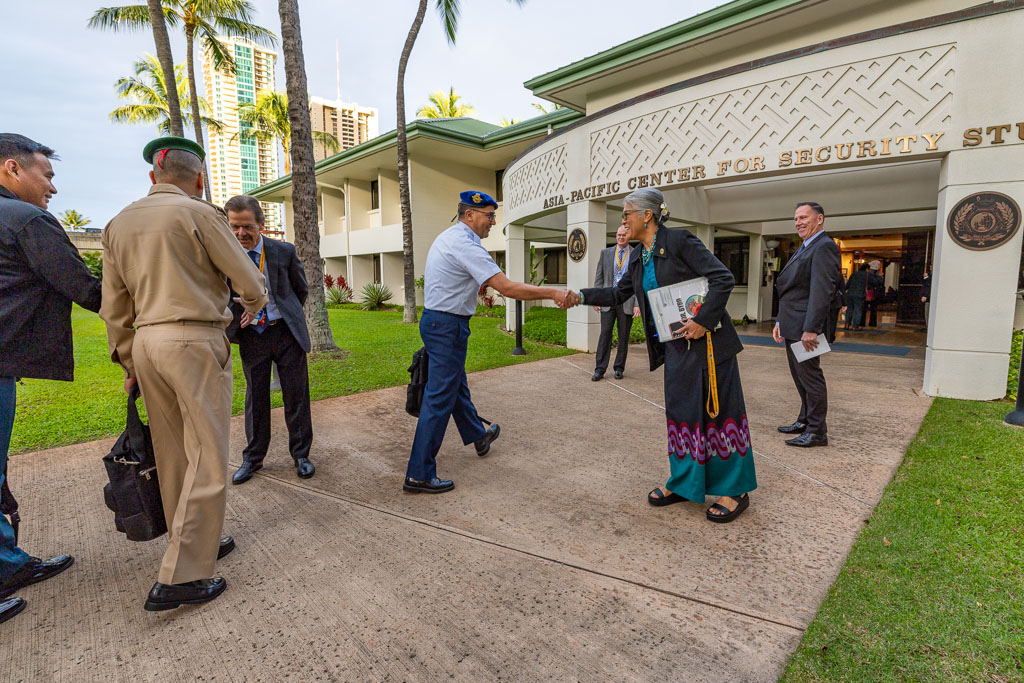Comprehensive Security Cooperation

The Comprehensive Security Cooperation (CSC) course is a five-week, in-residence executive program offered three times a year for mid-level military, government, and non-government professionals in the security sphere. Its goal is to empower warfighters in the U.S. and its allies and partners, thereby strengthening their collective deterrence against adversaries attempting to alter the status quo, whether by force or coercion below the threshold of armed conflict.
Fellows spend approximately three-quarters of their time on complex, interdisciplinary, and transboundary security challenges and about a quarter on specialty security content that deep-dives into a variety of priority areas for warfighters and defense policymakers. Alongside presentations, discussions, and exercises, Fellows analyze security environments, identify key disruptors, and develop strategies to counter them. Through this collaborative process, they build relationships, enhance mutual understanding, and reinforce defense cooperation.
Throughout the course, Fellows work toward developing resilient solutions to pressing security challenges in the Indo-Pacific. These efforts enhance the capacity of the U.S. and its regional allies and partners to deter malign influence and aggression and effectively respond to complex security threats, thereby bolstering regional stability and upholding the rules-based international order.
CSC aims to contribute to a free, open, prosperous and secure Indo-Pacific by:
- Educating: Deepening understanding and encouraging critical evaluation of complex security challenges.
- Connecting: Constructing a network of interdisciplinary practitioners in order to enhance international security cooperation.
- Empowering: Building individual potential and partner capacity to find innovative solutions to complex security challenges, employing a whole-of-society approach.
Critical thinking sessions emphasize the importance of objective, rigorous analysis, while introducing fellows to analytical tools to help them understand complex security challenges.
Geostrategic sessions explore the range of different security challenges, regional security architectures and geostrategic considerations within each geographic sub-region: Northeast Asia, Southeast Asia, South Asia and Oceania. These sessions are complemented by an examination the U.S. Indo-Pacific Strategy.
Security challenges examined in the course include, but are not limited to, strategic deterrence, maritime security, counterterrorism and irregular warfare, cybersecurity, regional military modernization, critical infrastructure protection, information operations, and the evolving role of emerging technologies in security competition.
Capacity sessions aim to develop a strategic-level understanding of areas such as statecraft, security sector governance, interagency cooperation, and crisis management.
Exercises include strategic table-top exercises which aim to deepen understanding of strategic cooperation and competition between states.
Upon successful completion of this course, you will receive a Course Certificate and Alumni Status.





